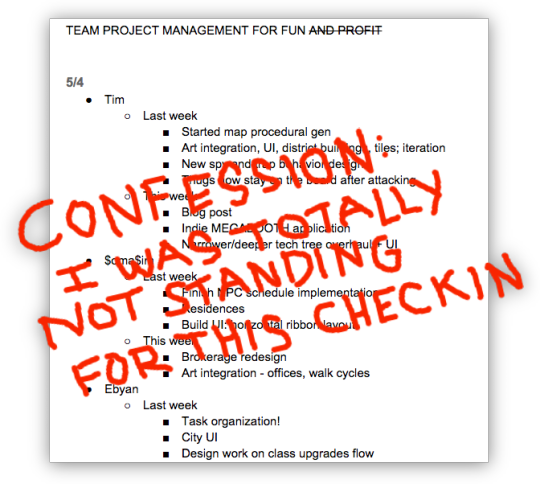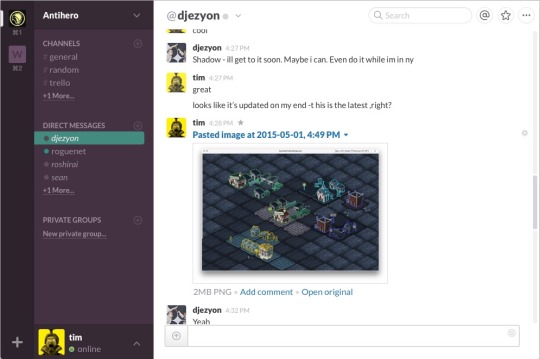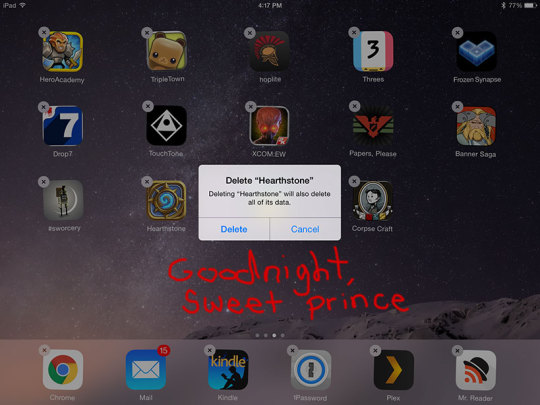
Featured Blog | This community-written post highlights the best of what the game industry has to offer. Read more like it on the Game Developer Blogs or learn how to Submit Your Own Blog Post
An Indie Developer's Toolbox
Staying focused and accountable, and not playing Hearthstone all day, when you're working alone.

(Reposted from my game development blog.)
This post is about tools and techniques for working alone and not being completely ineffective.
It’s my third piece on process and project management as an indie developer. I hadn’t planned on gazing quite so intently at my own navel when I began this blog several weeks ago, but: you write what you know, and what I’ve known for the past two years is working at home, alone, on this silly game.
Previously:
Buying a Design Partner - why I’m paying someone to playtest my game.
Design, Doubt, & the Scientific Method - One Weird Trick for dealing with game design anxiety.
The Problem
There are two consistent challenges I have to actively confront in order to be productive: accountability and focus. I’m self-funding my game. I work alone in my living room. There’s nobody else here during the day except for a cat, who’s like the worst role model ever. None of the traditional sources of external accountability - co-workers, bosses, other peoples’ money - are part of my day-to-day, and so it’s dangerously easy to just screw off and do nothing.
Stand-Up Meetings
I am lazy and unmotivated in the absence of accountability structures, and so it’s necessary to create some. “Stand-up meetings” were a staple of daily life at both studios I worked at before going indie. Some variation of this process is pretty standard in the industry: the dev team meets, face-to-face, every morning. Everyone stands to increase the likelihood that the meeting will be quick, and speaks briefly about what they did yesterday and what they’re planning to do today. It’s tough to slack off or spend an unreasonably long time in a rabbit hole when you’re regularly reporting to your peers.
I’m simulating stand-up meetings with Google Hangouts, Google Docs, and a couple like-minded indies who are working on their own games. Every Monday morning at 10am sharp, I get on a video chat with Rob Zubek (1849) and Ebyan Alvarez-Buylla (Crossword Dungeon). We talk, in turn, about what we did last week and what we’re doing this coming week, and about design and code issues we’re struggling with or want feedback on.

The salient bits of a participant’s checkin get recorded in an ever-lengthening Google Doc that we can all see and edit, which means there’s a permanent record of what each person told the group they were going to be working on. If somebody’s lost in the weeds or is otherwise unproductive, it’ll be noticed - and they’ll be called out.
(We use Google Hangouts instead of Skype because the AV quality is better and also because Skype is just a horrible piece of software.)
Task Tracking
Maybe everybody else already does this, but there was a time when I did not have a specific system for managing to-do lists. Here’s why it’s important: it keeps you organized, of course, but it also provides another layer of accountability. I hate getting to the end of a week and seeing that only a few items have moved to my “done” list.
(I use Trello because it’s free, and because the UI is pretty and satisfying to use. I wish I had something smart and insightful to say about it. It works.)
Team Communication
There are several contractors working on Antihero. We’re not in the same physical space, however, so we use Slack for pretty much all written communication.
Slack replaces email and IM - and, to some extent, wikis and other group documentation platforms. All messages are persistent, it works on all your devices, it integrates well with every web app ever, and, again, it’s free. (And it’s made by game developers.)

Hearthstone
Hearthstone is another free productivity tool: if you install it, you’ll be free from productivity! LOLOLlkajsdf.
I have a problem with this game: if it’s installed on my iPad, I will play it and not work. It’s not ok to play during work hours; it is ok to play in the evening. So: every morning I delete it from the iPad, and every night I reinstall, because I am ridiculous.
(There’s always a Hearthstone. Over the course of Antihero’s development, I’ve also had to cut off access to Card Hunter and like half of the web.)

Tools Fetishization
Now to undermine everything that just came before. I’m frequently guilty of tools fetishization - “I need to find the right word processor to start writing this stupid blog,” for example - and it’s a great way to feel like you’re making progress when you’re actually doing nothing. Good tools improve the development process, but finding the right tool is not the same as making a game.
(If you’re interested in running your own thieves’ guild, you can read more about Antihero, my in-development game, here, or follow me on Twitter, here.)
Read more about:
Featured BlogsAbout the Author(s)
You May Also Like







.jpeg?width=700&auto=webp&quality=80&disable=upscale)








